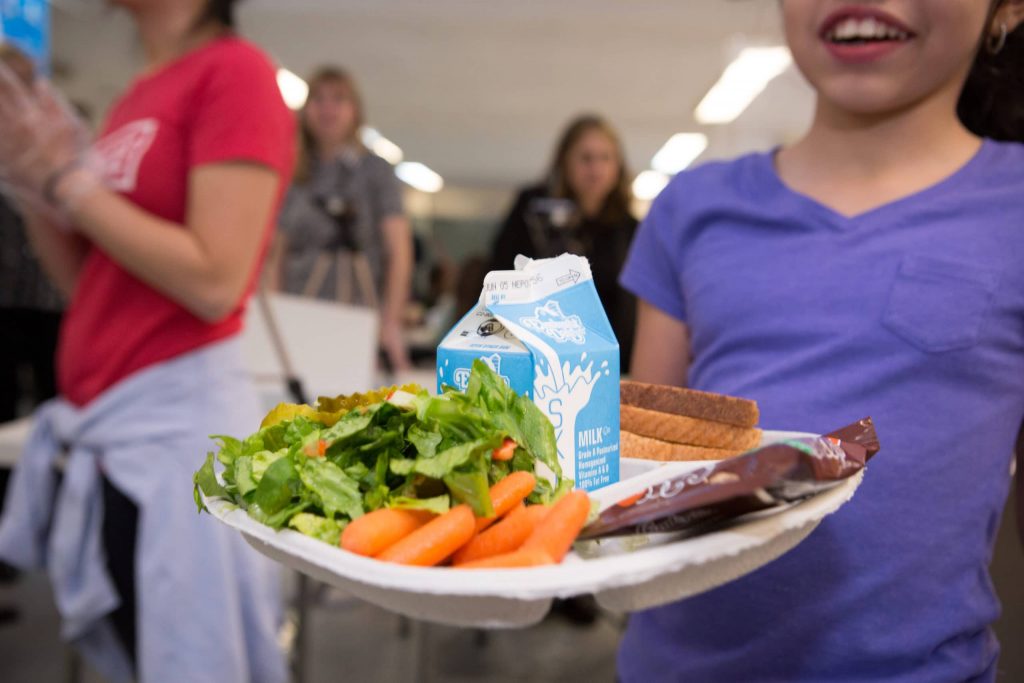New York, December 6, 2018 – The U.S. Department of Agriculture issued a final rule today that relaxes nutrition standards in school meal programs. We believe this rule will undermine the health of our children and their future potential.
At FoodCorps, our mission is to connect kids to healthy food in schools. Across the country, from small rural schools to the largest urban school districts, we work with schools to get kids excited about eating healthy food every day. We know that changing kids’ eating habits takes time and effort, but it is possible and we’re making it happen.
Our kids deserve the best food to fuel them for success. That’s why we opposed this effort to slow and even undo evidence-based nutrition standards when the USDA began this process last year. The final rule will make it easier for schools to serve meals with more salt, fewer whole grains, and more sugar through allowing low fat (in addition to nonfat) flavored milk—changes that contribute to our country’s already high rates of diet-related disease.
Since stronger nutrition standards went into effect in 2012 as part of the Healthy, Hunger-Free Kids Act, schools have worked hard to meet them. In fact, a 2016 statement from the USDA reported that more than 99% of schools were successfully meeting those standards and working toward achieving future targets.
We should demand the best for our kids and help the schools that need extra support in meeting these necessary goals. If kids aren’t passing their math tests, we don’t make the tests easier. We should expect the same of our school meals, which feed 30 million children every day—most of whom rely on these meals for their daily nourishment.
In the span of the two-month public comment period, the USDA received over 85,000 comments to the pending rule, with 96% opposed to these changes. And contrary to some claims, kids are eating more healthy food, including fruits and vegetables, since the updated standards went into effect.
We have an obligation to do what is best for our kids. FoodCorps is committed to working with schools, communities, and other allies to will continue to build on the important progress we have made in setting kids up for healthier, brighter futures. Together, we can help protect our children’s health and lifelong potential.





